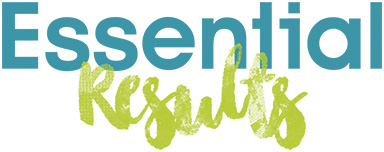
Mastering the Future: Top Skills in Demand for 2024 and How to Acquire Them!
As the digital landscape continues to evolve at a breakneck pace, so too does the job market. In 2024, the skills that will set job seekers apart are more specialised and dynamic than ever before. Whether you’re a seasoned professional looking to stay ahead of the curve or a newcomer eager to make your mark, understanding these in-demand skills is crucial.
In this blog, we’ll dive into the top skills employers are seeking in 2024 and provide you with actionable steps to acquire them. From data analytics to customer service and sales, we’ve got you covered. We’ll explore why these skills are essential, where you can learn them, and how you can apply them to boost your career prospects.
Join us on this journey to future-proof your career and stay competitive in an ever-changing job market. Let’s get started!
Mastering Communication in the Workplace
Whether you work independently or within a bustling community, effective communication is paramount. It’s not just about exchanging information; it’s the foundation for seamless collaboration, fostering a positive workplace culture, and driving productivity to new heights.
Collaboration and Teamwork: Clear communication ensures that everyone is on the same page, facilitating smooth cooperation and reducing misunderstandings. This harmony within teams doesn’t just streamline workflows; it cultivates an environment where ideas flow freely and innovation thrives.
Client Relations and Customer Service: Beyond internal dynamics, strong communication plays a pivotal role in client relationships. By understanding their needs and concerns, you can tailor your services to exceed expectations, thereby enhancing customer satisfaction and loyalty.
How to Develop this Crucial Skill
To elevate your communication skills and unlock your professional potential, there’s a wealth of resources at your fingertips:
Online Learning: Platforms like FutureLearn and Open University offer a plethora of courses designed to enhance both personal and professional communication. Whether you prefer short modules or in-depth learning experiences, there’s something to suit every schedule and learning style.
Interactive Workshops and Seminars: Dive into interactive workshops and seminars dedicated to refining your communication and leadership abilities. These sessions not only equip you with practical strategies but also provide a supportive environment for honing your skills.
Toastmasters and Practical Engagement: If public speaking gives you butterflies, consider joining a club like Toastmasters. Here, you can practice speaking in a supportive setting and receive constructive feedback from peers. Engaging in team projects further strengthens your communication prowess by applying theory to real-world scenarios.
Continuous Learning: Stay ahead of the curve by devouring articles and guides on effective communication techniques. These insights empower you to navigate challenging conversations with confidence and finesse, making every interaction count.
Mastering Teamwork in the Workplace
Teamwork is essential in today’s workplace, but like any skill, it can be developed whether you are a seasoned professional or just starting your career. In the modern workplace, teamwork isn’t just a buzzword; it’s a crucial skill that drives success and innovation. But why is it so highly valued by employers? Let’s break down the reasons.
Communicate Effectively: Mastering good teamwork in the workplace involves several key strategies. Start with effective communication: actively listen to colleagues, respond thoughtfully, express ideas clearly, and provide constructive feedback to foster openness and collaboration.
Embrace Diversity: Recognising and respecting the different backgrounds, perspectives, and skills of your team members can lead to more innovative solutions and a richer pool of ideas. Ensure everyone feels included and valued by actively seeking input from quieter team members and considering various viewpoints in decision-making processes.
Active Participation: Engaging in team discussions and activities with enthusiasm and interest. Taking the initiative to suggest ideas and volunteer for tasks demonstrates your commitment and leadership potential, which can inspire others to be more involved as well.
Resolving Conflicts: Addressing conflicts effectively and as soon as they arise to prevent issues from festering and damaging team cohesion. By tackling conflicts promptly and seeking mutually beneficial outcomes, you can ensure a more cooperative and productive team dynamic.
How to Develop this Crucial Skill
Be flexible and Adaptable: In dynamic team environments, flexibility and adaptability are key. Be open to new ideas and changes in plans, and be willing to adjust your preferences for the benefit of the team. Flexibility often leads to better outcomes for everyone involved.4
Engage in Team-Building Activities: Participating in workshops and training sessions focused on teamwork and collaboration engages in team-building exercises that promote trust, communication, and problem-solving skills, leading to a more cohesive and effective team.
Learn from Others: Seek mentorship from experienced colleagues who excel in teamwork. Observe how successful teams operate and implement these best practices in your own team. Learning from others provides valuable insights and helps improve collaboration and productivity.
Mastering Adaptability in the Workplace
In today’s fast-paced and ever-evolving work environment, adaptability has become a crucial skill for professional success. Cultivating adaptability not only enhances personal resilience and problem-solving but also positions individuals for growth and success in their careers.
Navigating change: The modern workplace is constantly evolving due to technological advancements, market shifts, and organisational changes. Adaptable employees can handle these changes with ease, quickly adjusting to new tools, processes, and job requirements without missing a beat.
Meeting Evolving Expectations: Customer and client needs are always evolving. Adaptable employees can respond to these changing expectations more effectively, ensuring that their work remains relevant and aligned with current demands, thereby enhancing client satisfaction and business success.
How to Develop this Crucial Skill
Be Open to change: Having a positive attitude towards change in the workplace is crucial. By viewing opportunities as avenues for growth rather than threats, you cultivate a mindset that embraces flexibility. This approach enables you to willingly adjust your routines and workflows to accommodate new processes or tools, fostering a more adaptive and resilient work environment.
Enhance Problem-Solving Skills: Approach problems with a creative mindset by seeking innovative solutions instead of sticking to traditional methods. Practice staying calm and focused when faced with unexpected challenges to maintain composure and effectively address issues as they arise.
Be Proactive: By anticipating change, you can stay ahead of the curve and better manage transitions. Additionally, take initiative by volunteering for new projects or roles that push you out of your comfort zone and require you to adapt. This proactive approach not only enhances your adaptability but also positions you as a valuable and forward-thinking team member.
In today’s dynamic and fast-paced workplace, communication, teamwork, and adaptability are crucial skills that significantly impact an organisation’s success. Effective communication ensures that ideas are clearly conveyed and understood, fostering collaboration and reducing misunderstandings. Strong teamwork leverages diverse skills and perspectives, driving innovation and efficiency. Adaptability allows employees to navigate changes seamlessly, maintaining productivity and resilience. By cultivating these skills, professionals can contribute more effectively to their teams and organisations, positioning themselves for growth and success in an ever-evolving work environment. Investing in these key areas is essential for both individual and collective achievement in the modern workplace.
